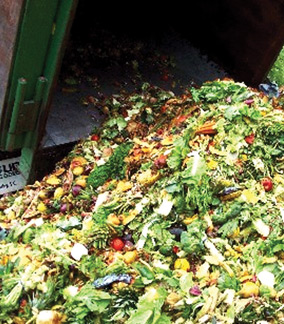A new paradigm is needed to end hunger
Food - and the land
we grow it on - are much too important to be left to ‘free’ markets
which are grossly distorted in favour of the rich.
by Olivier de Schutter

I took on the role of UN Special Rapporteur on the right to food in
2008, just as food prices were soaring to unprecedented heights on
global markets.
Food riots ensued and hunger deepened in poor, food-importing
countries - but there was one silver lining.
The imbalances of our food systems, which had been building up over
the past forty years, suddenly became visible.
We learned that summer that the global food supply was only a few
spoiled harvests away from failing to meet global demand.
But we also glimpsed the unjust logic at the heart of our globalised
food systems: populations with widely divergent purchasing powers have
effectively entered a bidding match for limited - and ultimately finite
- resources.
Food market
The global marketplace is brutally efficient at allocating resources
to the highest bidder - as opposed to where they are needed.
Its simple magic allows large areas of farmland in developing
countries to be used to cultivate feedstock for fuelling cars, or for
feeding the livestock that will satisfy burgeoning meat consumption in
the West.
According to some estimates, as much as six million hectares of
African land were bought up by EU biofuels companies alone between 2009
and 2013.
The ‘virtual land’ embodied in the EU's imports of protein crops to
feed animals represented 20 million hectares in 2010 - the equivalent of
almost 10 percent of the EU's own farmland.
Meanwhile, rather than be consumed directly by local populations,
smaller species of fish are shipped thousands of kilometres to fish
farms where they command more money as feed for the salmon and trout
rich consumers will buy.
Throwing food away
And this food can be wasted in huge quantities in wealthy countries -
the average European or North American consumer throws away more than
100kg per year - because food expenditure represents a slither of their
household budgets.
Overall, wealthy consumers are able to command the resources that
will allow their lifestyles to continue unchallenged, even as others are
deprived of basic calories and the environment is imperilled.
Indeed, food systems are failing spectacularly on these counts: close
to one billion people are still hungry and 1.4 billion are overweight or
obese, while food systems contribute almost one third of man-made
greenhouse gas emissions.
It is estimated that the livestock sector alone is responsible for a
staggering 51 percent of global greenhouse gas emissions, when livestock
respiration and the loss of forests and woodlands for pasture and feed
crops are taken into account.
 Yet many believe that the main challenge for the future is simply to
raise global food production and make the sector freer still to respond
to market signals and boost aggregate supply. Yet many believe that the main challenge for the future is simply to
raise global food production and make the sector freer still to respond
to market signals and boost aggregate supply.
System needs reform
The problem with this approach is that it ignores the gaping failures
of the present, and prescribes more of the same - with an extra bucket
of fertiliser and an extra storey on the factory farm.
We badly need an alternative paradigm for the 21st century. There is
much that can be done by developing countries themselves to support
small-scale farmers with the land, credit, technology and market access
they need.
Environmentally-sustainable and potentially high-yielding
agroecological systems can be promoted, and efforts can be made to link
up these producers with local consumers.
However, these reforms cannot be made in a vacuum. In our globalised
food systems, patterns are locked in by signals from the wealthy
countries.
The success of reform in the global South is contingent on reforms in
the global North.
By reining in their demand for animal products and agrofuels, and by
cutting back their food waste, wealthy countries would be able to reduce
their bloated claims on global farmland, allowing those with lower
purchasing power to command the resources they need.
Attack on the poor
Change must also occur on the supply-side, and here it is a question
of *how *we produce, not merely *how much. *Thanks to huge subsidies to
farmers in wealthy countries, the meat and food processing industries
have benefitted from a glut of cheap grains over recent decades.
This has made it tempting for developing countries to rely on food
imports. But it has not been sufficient to put enough nutritious food on
the plates of the poor.
And it does not compensate for the loss of genuine income-earning
opportunities by small-scale farmers whose efforts to supply their local
markets have been undercut.By gradually cutting back their farm
subsidies, wealthy countries would give small-scale farmers in
developing countries a fair shot at sustaining their livelihoods and
feeding local communities.
The luxury of the rich
Only when this model is given a chance to succeed will developing
countries have a real alternative to selling off their land to
large-scale export-oriented production units, in the hope that global
prices will be kind enough to allow them to import back enough food to
cover their basic needs.
Six years on from the 2008 food crisis, there has been a
‘reinvestment in agriculture’, but too little thinking has taken place
outside the productivist box.Without reform in the North and the South,
and without a new paradigm, globalised food systems will remain an
auction house where the luxury tastes of the rich world compete against
the basic needs of the poor - and win every time.
-Third World Network Features.
|

